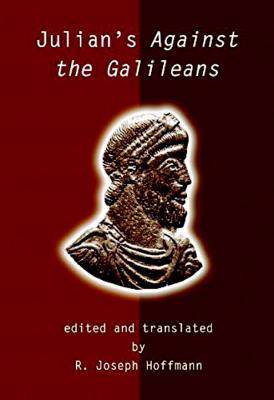
- Retrait gratuit dans votre magasin Club
- 7.000.000 titres dans notre catalogue
- Payer en toute sécurité
- Toujours un magasin près de chez vous
- Retrait gratuit dans votre magasin Club
- 7.000.0000 titres dans notre catalogue
- Payer en toute sécurité
- Toujours un magasin près de chez vous
Description
Flavius Claudius Julianus, better known to history by the name imposed by his Christian opponents, Julian "the Apostate," was a nephew of the first Christian emperor, Constantine I. Julian is one of the most fascinating figures of late antiquity. More information is available about him from both pagan and Christian sources than about any other emperor. His reign inspired both admiration and contempt.Julian's ambitious program was to reinstate the religion of his ancestors and, in the process, to subdue the growth of the Christian church, which had achieved legitimacy under the reign of his uncle. Once in power, he immediately sought to revive the religion of classical Rome, to reform the pagan priesthood, revitalize training in classics and pagan philosophy and - as an affront to Christian prophecy - to rebuild the Jewish temple in Jerusalem.This is the first translation into modern English of the complete corpus of Julian's Against the Galileans and related writings. It not only puts the work of the philosopher-emperor into historical perspective but offers important insights into the waning days of pagan philosophy and the growth of the Christian church against the background of intellectual and religious opposition. The translations are supported by a full historical introduction to the life of Julian and a detailed treatment of his religious philosophy, including the origins of his understanding of the Christian faith.The work is essential reading for anyone interested in the religions of late antiquity, the growth of the Christian church, and the final phase of the conflict between paganism and Christian teaching.
Spécifications
Parties prenantes
- Auteur(s) :
- Traducteur(s):
- Editeur:
Contenu
- Nombre de pages :
- 226
- Langue:
- Anglais
Caractéristiques
- EAN:
- 9781591021988
- Date de parution :
- 01-11-04
- Format:
- Livre relié
- Format numérique:
- Genaaid
- Dimensions :
- 157 mm x 234 mm
- Poids :
- 476 g

Les avis
Nous publions uniquement les avis qui respectent les conditions requises. Consultez nos conditions pour les avis.






